




| Royal Tern (Thalasseus maximus (Boddaert, 1783)) |





|
|
Scientific name: Thalasseus maximus (Boddaert, 1783) Common name: Royal Tern French name: Sterne royale Order: Charadriiformes Family: Laridae Size: Body size: 45 to 50 cm; Wingspan: 125 to 135cm; Weight: 350 to 450 g. Habitat: Bays, lagoons and sandy areas on the seaside. Royal Terns also fly inland, along rivers, outside the breeding period. Food: The Royal Tern feeds on small fishes captured next to the sea shore. It detects preys in flight. Then it dives down after a short stationary flight to capture the preys. Nesting: Royal Terns nest in large colonies usually located on desert islands. The nest is a simple depression dug in the sand. There is a single egg per brood. Migration: American Royal Terns winter in South America. Western African Royal Terns move northwards or southwards outside the breeding period. Geographic area: Atlantic and pacific coasts of the southern part of the United States and of Mexico, the Caribbean. Atlantic coasts of Senegal and Mauritania. |
As other Tern species, the Royal Tern has a deeply forked tail and pointed wings. This is a rather large Tern with pale grey upper side and wings and with a white underside. The head bears a black cap with a crest at the back. The front side of the black cap disappears in winter. The long orange red bill is wide and pointed. The legs are short, black and webbed. Juveniles are similar to adults in winter plumage. The bill is a duller colour and there can be dark marks on the back and at the wing tips. |
| [To know more about the Royal Tern] [Next picture] [Top] |
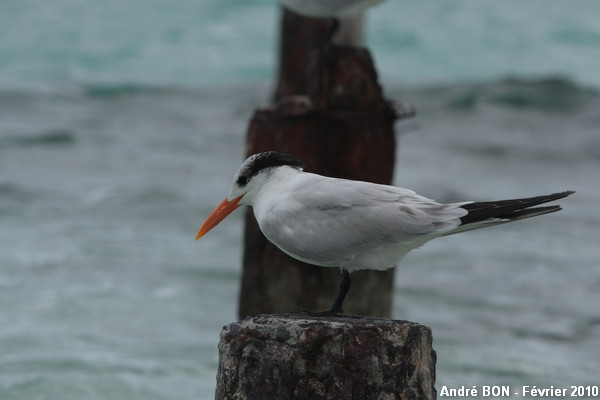
|
The Royal Terns, observed near the beach, have been very easy to approach. Some of them had a white tail while other ones, like this one, had a black tail. |
| [To know more about the Royal Tern] [Next picture] [Previous picture] [Top] |
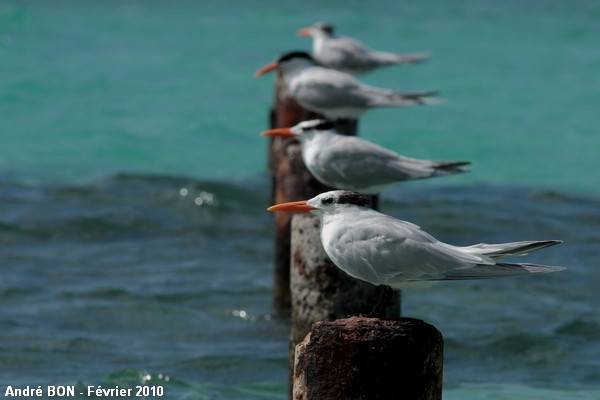
|
A nice bunch of Royal Terns. |
| [To know more about the Royal Tern] [Next picture] [Previous picture] [Top] |
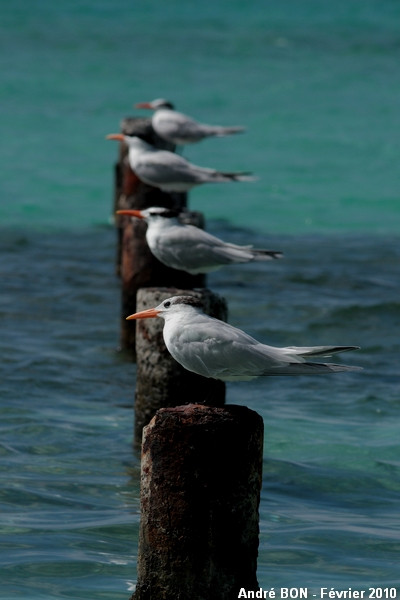
|
A nice bunch of Royal Terns. However I have observed that if a Brown Pelican wants to perch here then it flies slowly down to land and the Tern has to leave the place. |
| [To know more about the Royal Tern] [Next picture] [Previous picture] [Top] |
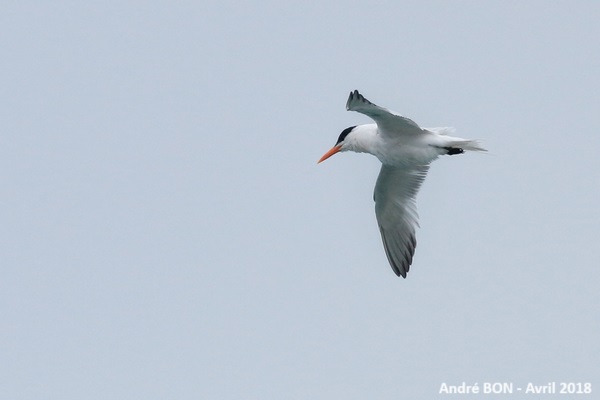
|
In flight. |
| [To know more about the Royal Tern] [Previous picture] [Top] |
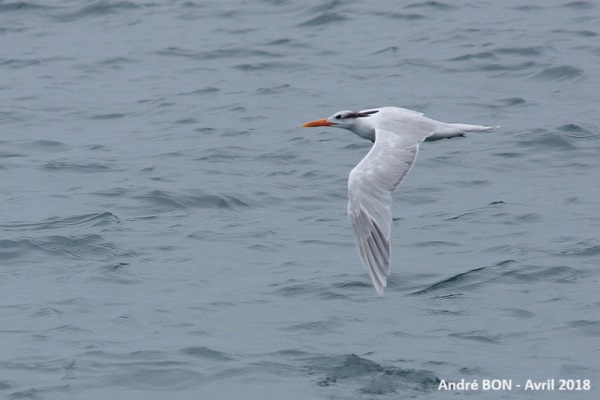
|
In flight. It seems to me that the front of the cap has not yet regained its black colour of the breeding plumage. |